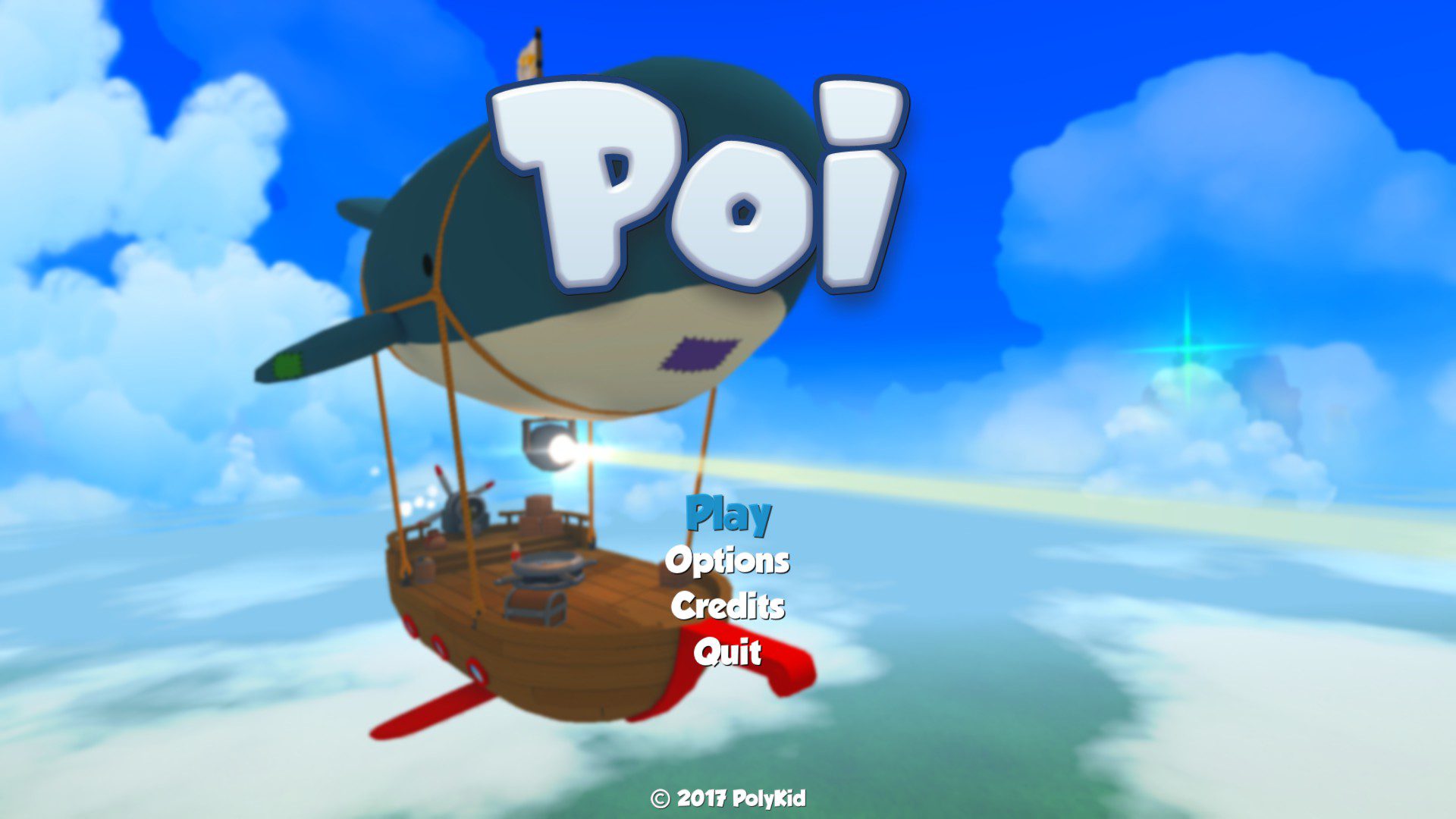Title: Poi
Genre: Action, Adventure, Indie
Developer: PolyKid
Publisher: PolyKid
Release Date: Feb 1, 2017
Booting up Poi feels like the you’re reliving the very best days of the 3D platformer era. Taking so much inspiration from games like Super Mario 64, Poi is a love letter to not only that game, but to that entire generation of gaming.
While the issues that plagued many of those games back then also crop up here, everything just comes together so well that the fun factor is off the charts negating most small issues. I liked it so much that I couldn’t stop playing the game and even logged more hours into collecting everything than I’ve spent on some AAA titles.
Poi keeps things simple. You play as either a boy or girl adventurer and head out on a quest to collect a number of Explorer Medallions to be the very best like no one ever was. These medallions are exactly like the stars you collect in Super Mario 64. Where that game set its levels inside an interconnected castle, Poi uses an overworld that you can freely explore. And here is where the first cool bit about the game comes into play.
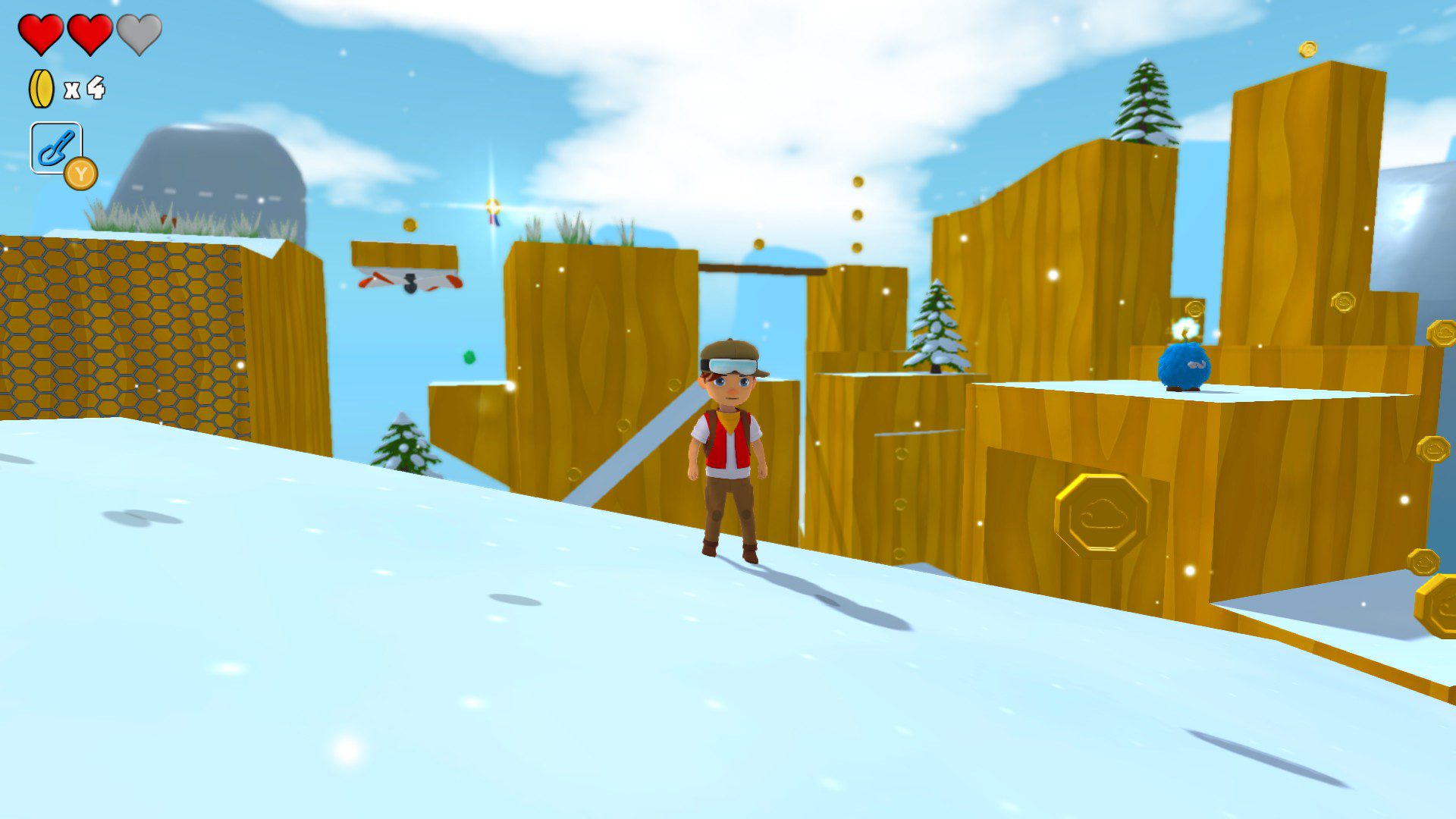
Poi’s world takes place in the skies. Travel is done by people using these rickety airships and while you can’t take control of the one that ferries your around, you can still fly about the various smaller floating islands and visit other ships that are flying about.
You do this by jumping overboard and right as you think you are done for, the game kicks in by opening up your glide parachute. It’s a real joy to simply fly about the overworld and meet all the NPCs that dole out smaller side-quests.
“Poi takes you back to a time when video games were focused primarily on fun”
Just like in Super Mario 64 you need to collect a number of the Explorer Medallions before other worlds open up. It’s all comfortable and familiar, but it’s almost a bit too on the nose at times. Taking from the best is great, but relying too much on another game means yours simply doesn’t stand out all that much.
When each stage has a medallion that requires you to collect 100 coins you might be pushing it. There was even an instance where I was tasked with returning baby penguins to their mother. Sure, a bit different, but you get the idea.
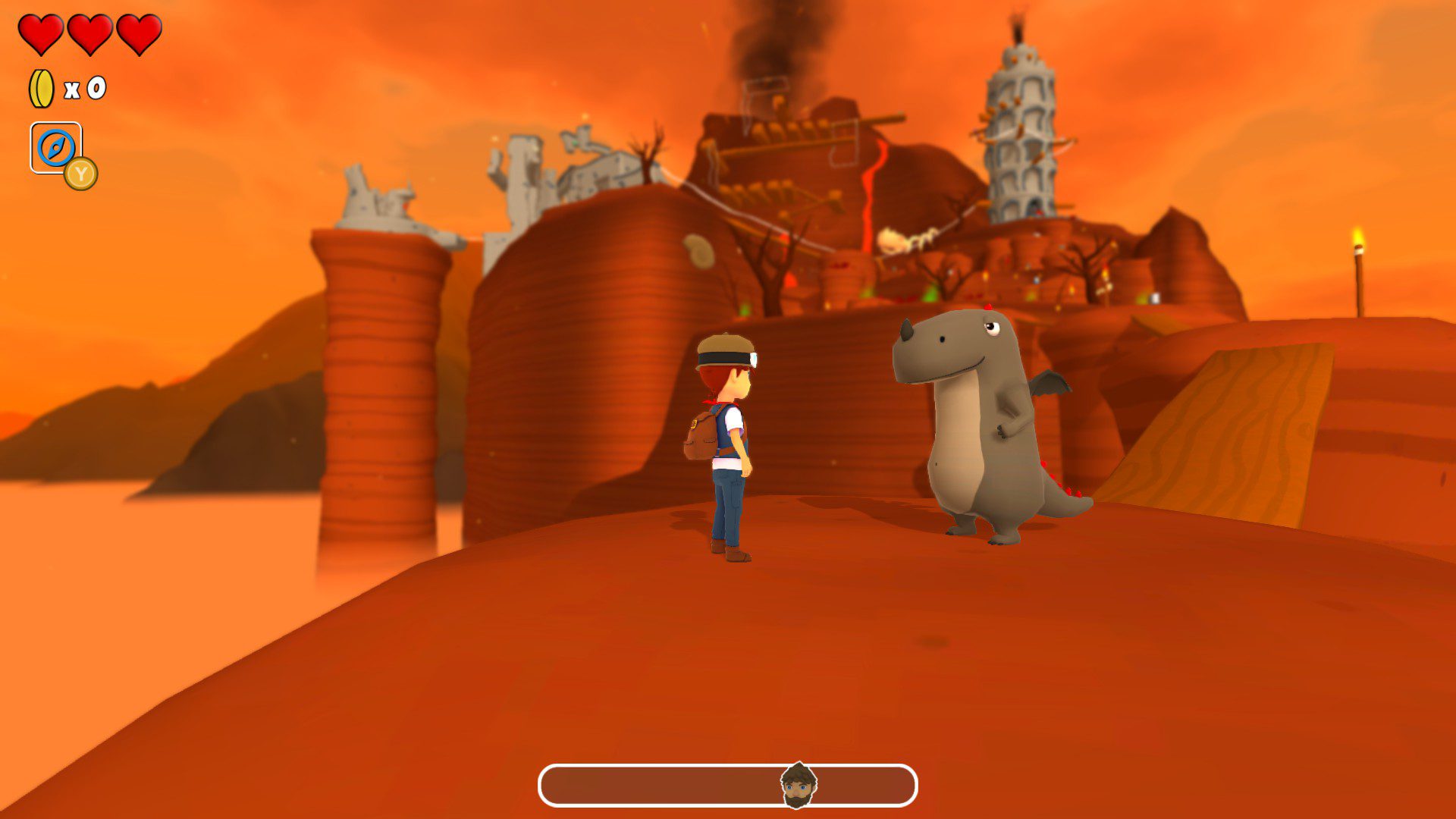
The gameplay also keeps things classic. You attack enemies by jumping on their heads like Mario or you can roll into them to knock them out, although I never really ever the later as the head jump was super effective in all encounters. Poi plays on the jumping quite a bit and, boy, do you really feel like Mario when doing it. You can double and even triple jump, slide down walls, jump back and forth between walls and pretty much every move that Mario pulled back in 1995.
The only real issue with the gameplay is that everything feels a little more loose on the control side than I would like. Most of the game deals with large open areas so it’s not a major issue, but whenever you come across precise jumping sections, especially in the late game section, you are going to be slipping, overshooting, or simply going where you didn’t want to. It’s almost as if the developers understood this as the game offers up checkpoints within a stage so you are never that far away from a major platforming section.
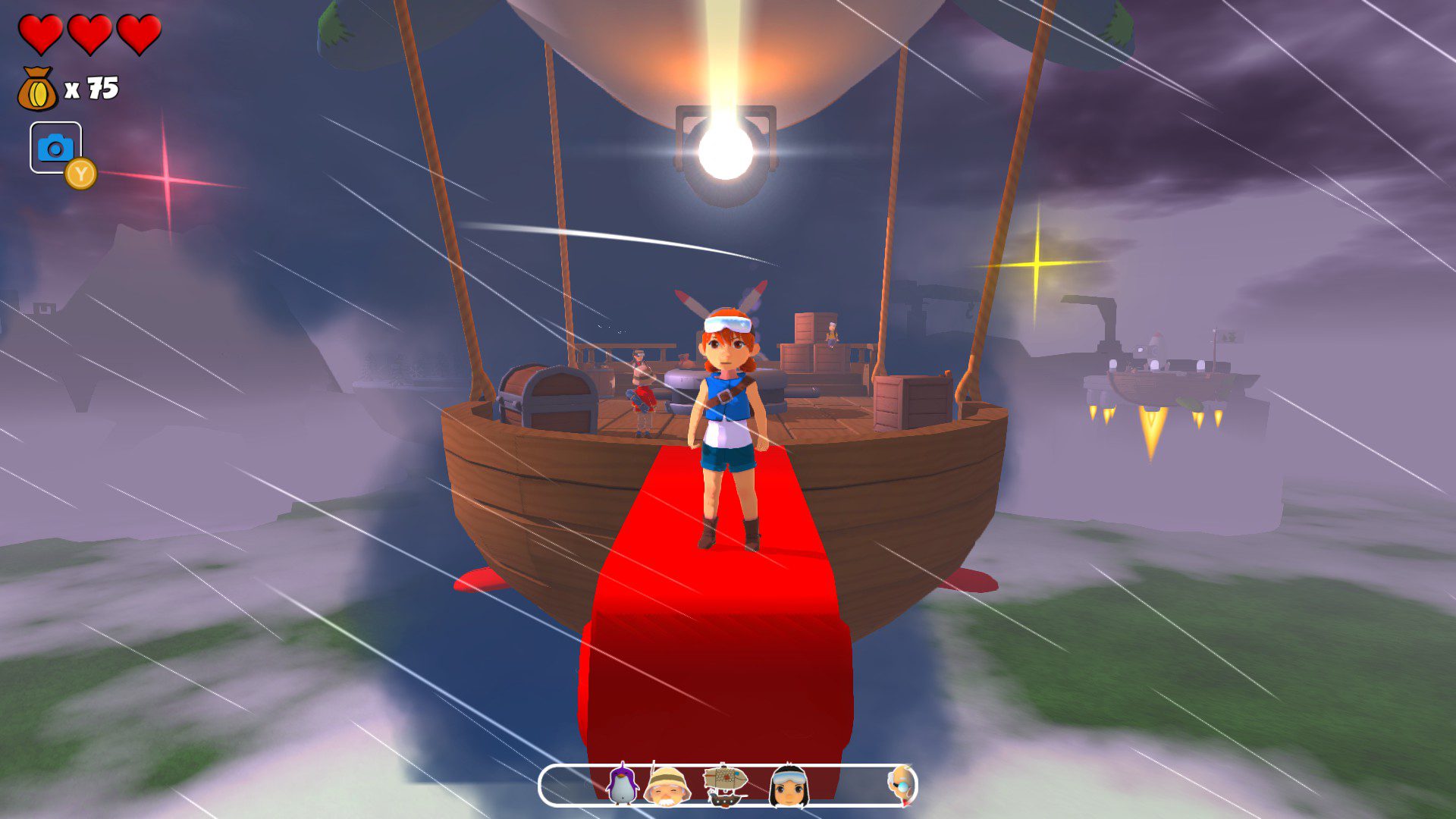
Poi probably isn’t going to test your limits, but that’s okay as it’s a great bit of fun, even if the game is extremely forgiving. You can die after a few hits, or by falling off the world, but the game starts you right back at a checkpoint and never resets everything you’ve done. This is great for younger players as Poi makes for the perfect 3D platformer for first-timers, but it still offers up things for adults and those with some experience.
There are a number of extra Explorer Medallions to collect that come in the form of challenge stages that will test your skill much like the challenge stages before a boss in Super Mario 64. Poi also pulls from the Rare model and offers up a lot of extra things to find and collect. You’ll even get a special extra gift if you complete everything so there is reason to do so.
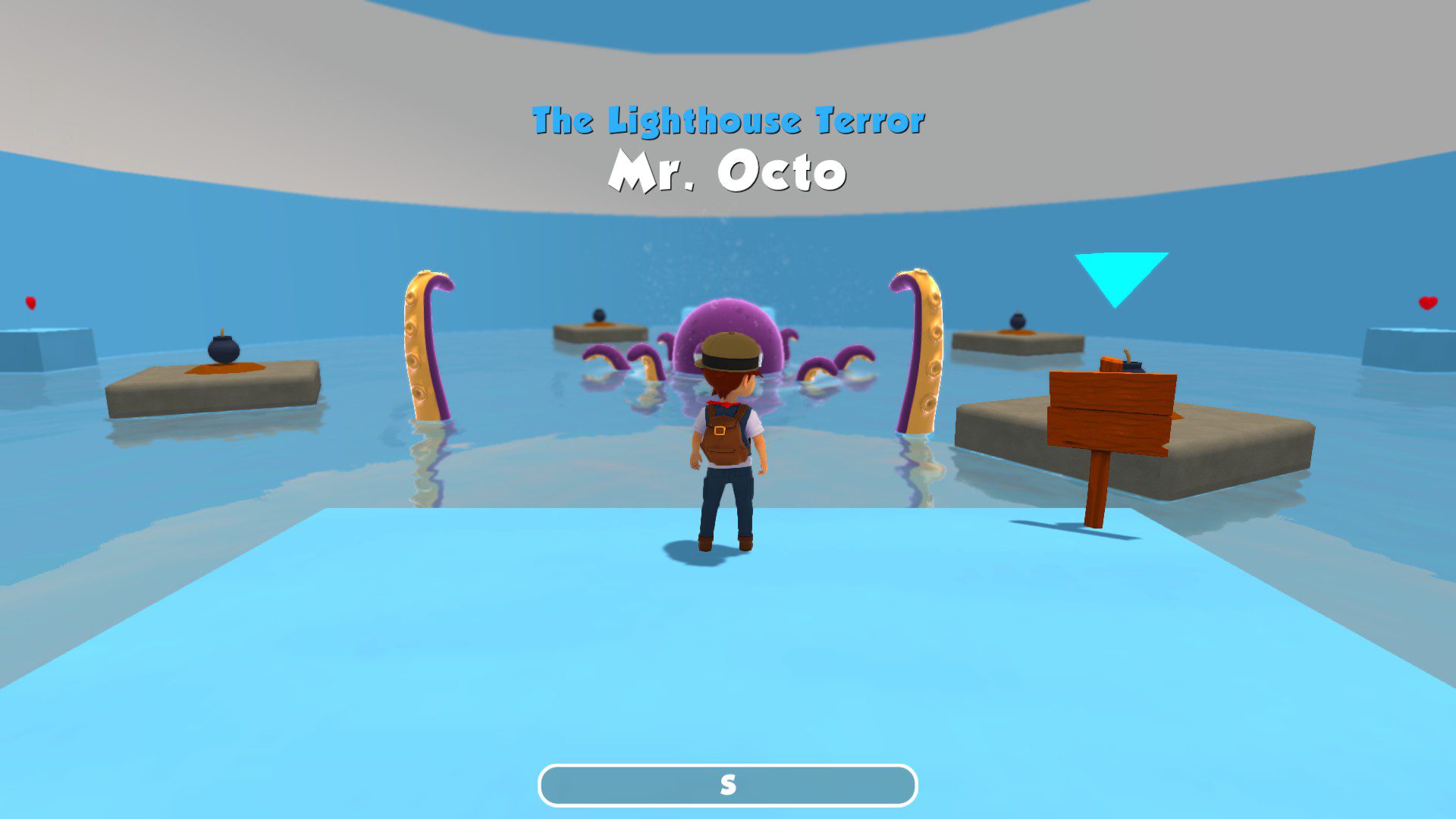
On top of all that you can also collect new outfits and buy tools with the coins you earn as you play. These tools open up the game as they include things like a shovel that lets you go digging for fossils that, again, will earn you Explorer Medallions, extra hearts, bigger wallet and even a camera that you can use to document all the creatures in the game. For such a small team and game there is a pretty sizable amount of content and things to do.
As someone who spent his formative days during the 3D platformer, Poi didn’t pose a serious challenge, but there is one there if you want it. The game offers up online leader-boards and times each of your runs for each Medallion you are going for. After you finish, you can check the leaderboard and see how you did against other players, so the game is built around the speed-running scene. This should give players some good reason to keep coming back to work on lowering their times.
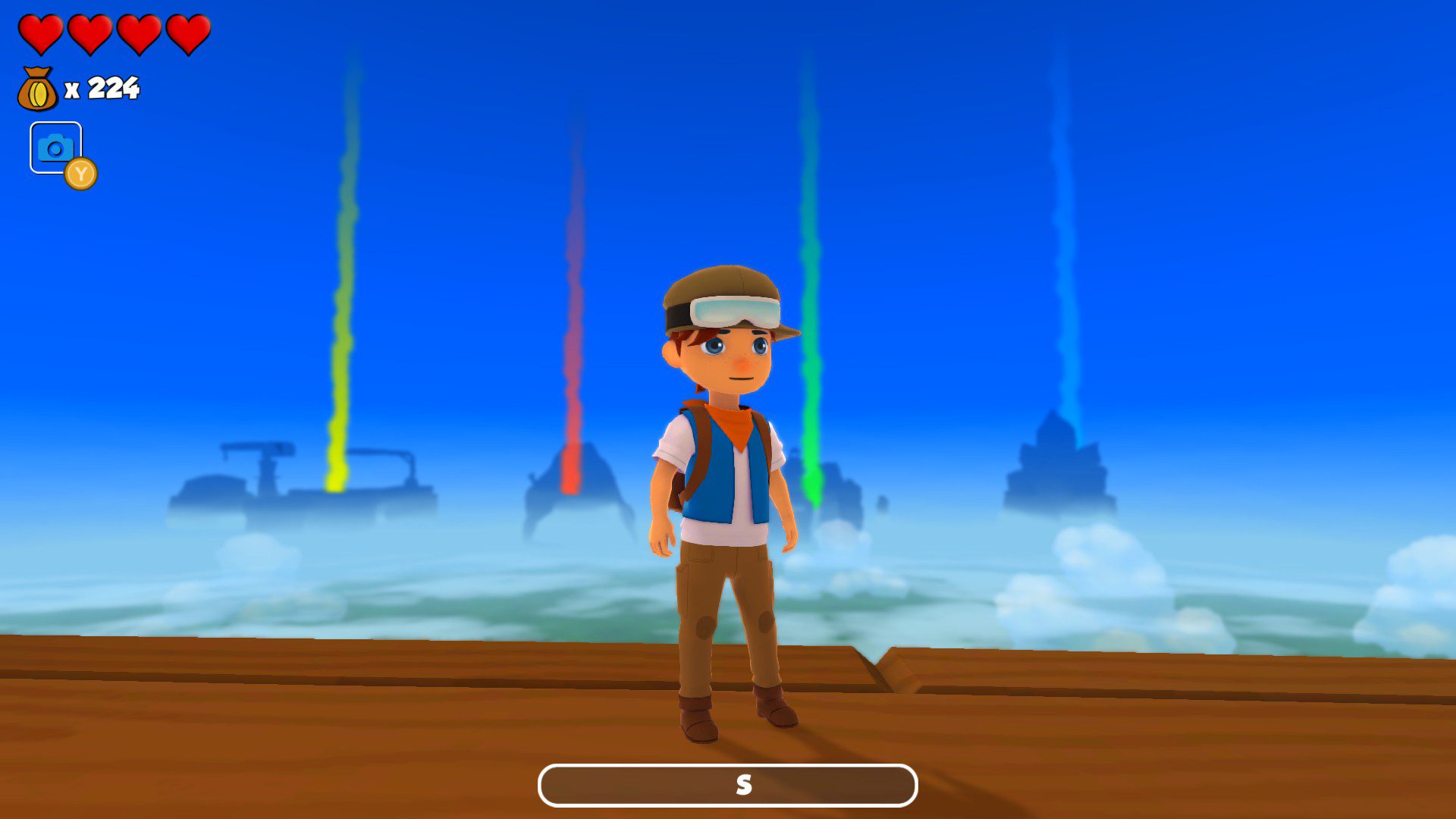
Poi is simply a gorgeous experience. The world is bright, colorful and the game features a weather system and a day/night cycle both in the overworld an in stages. This means that while you’ll be playing the same world a number of times, it can change in subtle ways each time. Add in some simple but fun boss battles and you have a game that is right for the whole family. But while I really do love Poi, it isn’t without its issues.
These problems are the same ones that plagued so many early 3D platformers. The camera can be a real pain in the butt to get under control at times leading to more than a few missed jumps. I also ran into a few minor glitches including some inconsistent hit detection and even managed to get myself stuck in an area I shouldn’t have been able to access because the jumping and sliding can be exploited. You probably won’t run into this much, but as I’m one that likes to try to break things (Ubisoft is still probably mad about us breaking Ghost Recon Wildlands three times during a live demo), but it’s an issue.
All that said, none of it is enough to take away that the fun factor with Poi is off the charts. I just wish that the game would have done more to find its own voice instead on relying so heavily on other games. While is doesn’t push the genre forward or bring anything new to the 3D platformer, what it does, it does well. Poi takes you back to a time when video games were focused primarily on fun, and that’s exactly what you’ll have while playing it.
“Poi takes you back to a time when video games were focused primarily on fun”
Final Score:
3/5
// Promoted Stories

